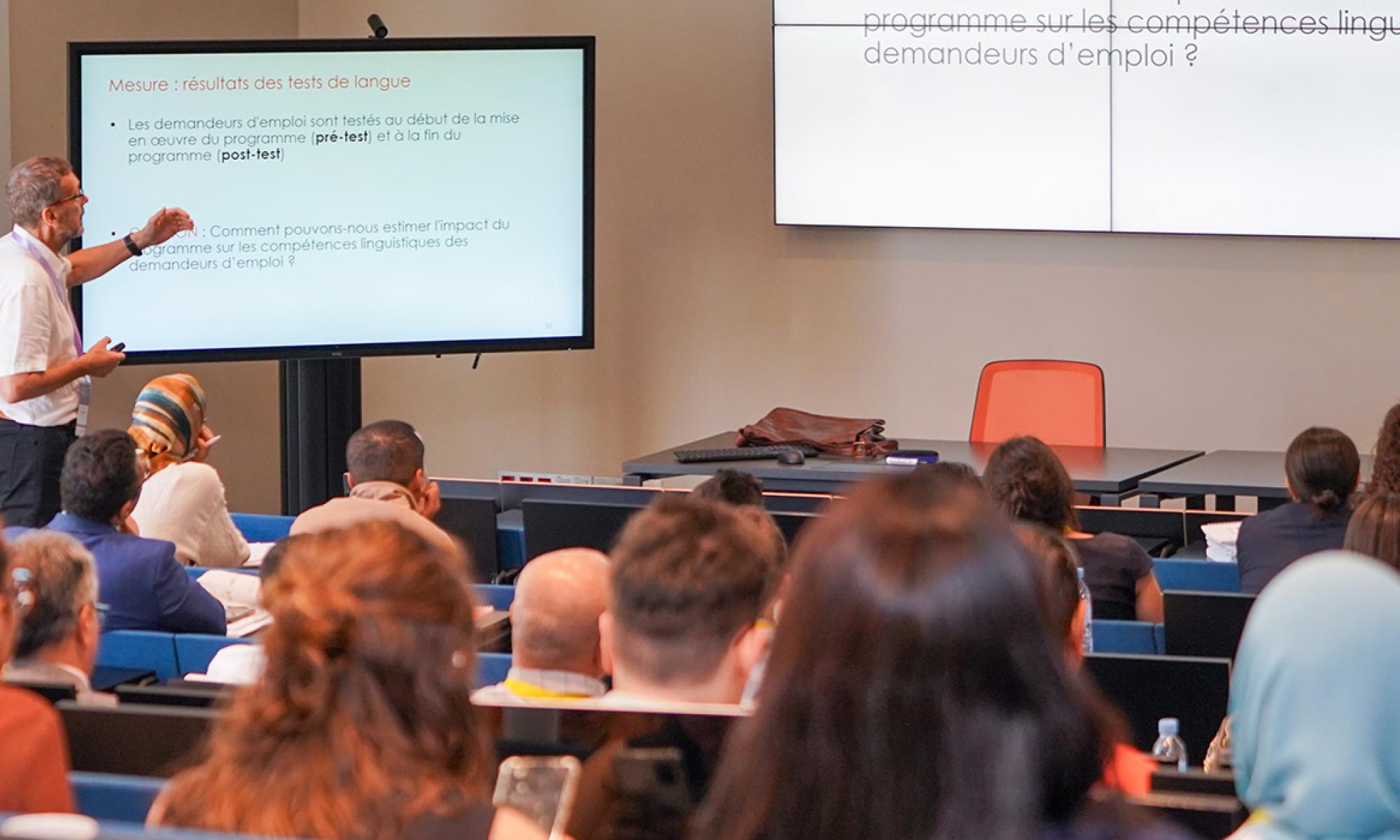
Education and Training
J-PAL works to strengthen the capacity of researchers, policymakers, practitioners, and donors who generate, use, and advocate for evidence in decision-making. With a focus on learning and innovation, we deliver graduate-level online courses and tailored training programs around the world to build skills for impact evaluation.
Education
We promote educational equity and advance knowledge in development economics and public policy through MIT’s MicroMasters and master’s programs in Data, Economics, and Design of Policy.
This year marked significant achievements for the MicroMasters program, with more than 38,000 new enrollees, 2,037 new course certificates, and 212 new credential holders.
In addition to these milestones, generous financial support from the Lemann Foundation, Hewlett Foundation, and Riady Foundation enabled us to award scholarships for learners to complete proctored MicroMasters exams, benefiting 62 learners in total.
NEW
ENROLLEES
COURSE
CERTIFICATES
CREDENTIAL
HOLDERS
We also expanded academic support by adding translated captions in French, Portuguese, and Spanish to our lecture videos, alongside practice exams and weekly recitations.
The DEDP master’s program also saw a successful year, with all 19 students in the 2024 cohort graduating and receiving their diploma in September. We also launched the new Public Policy Track within the DEDP master’s program for which we will start accepting applications this fall, with the first cohort set to arrive in spring 2026. In the meantime, we are excited to welcome the sixth cohort of 21 students from 13 countries in spring 2025.
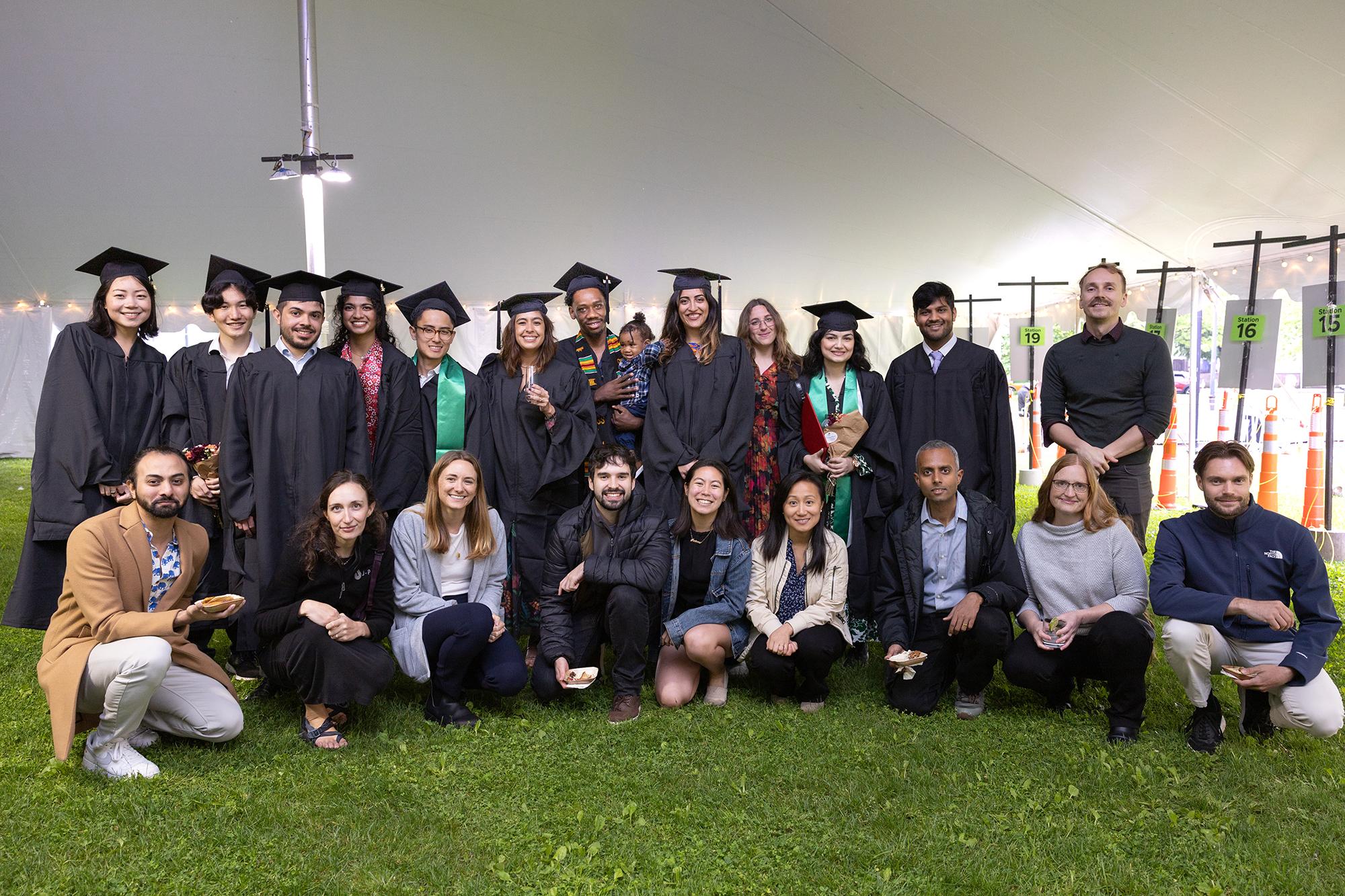
Training
The Training team develops and delivers courses and materials to build skills for using and generating rigorous evidence.
In 2024, we delivered over 45 courses on impact evaluation reaching 1,750 participants around the world, including:
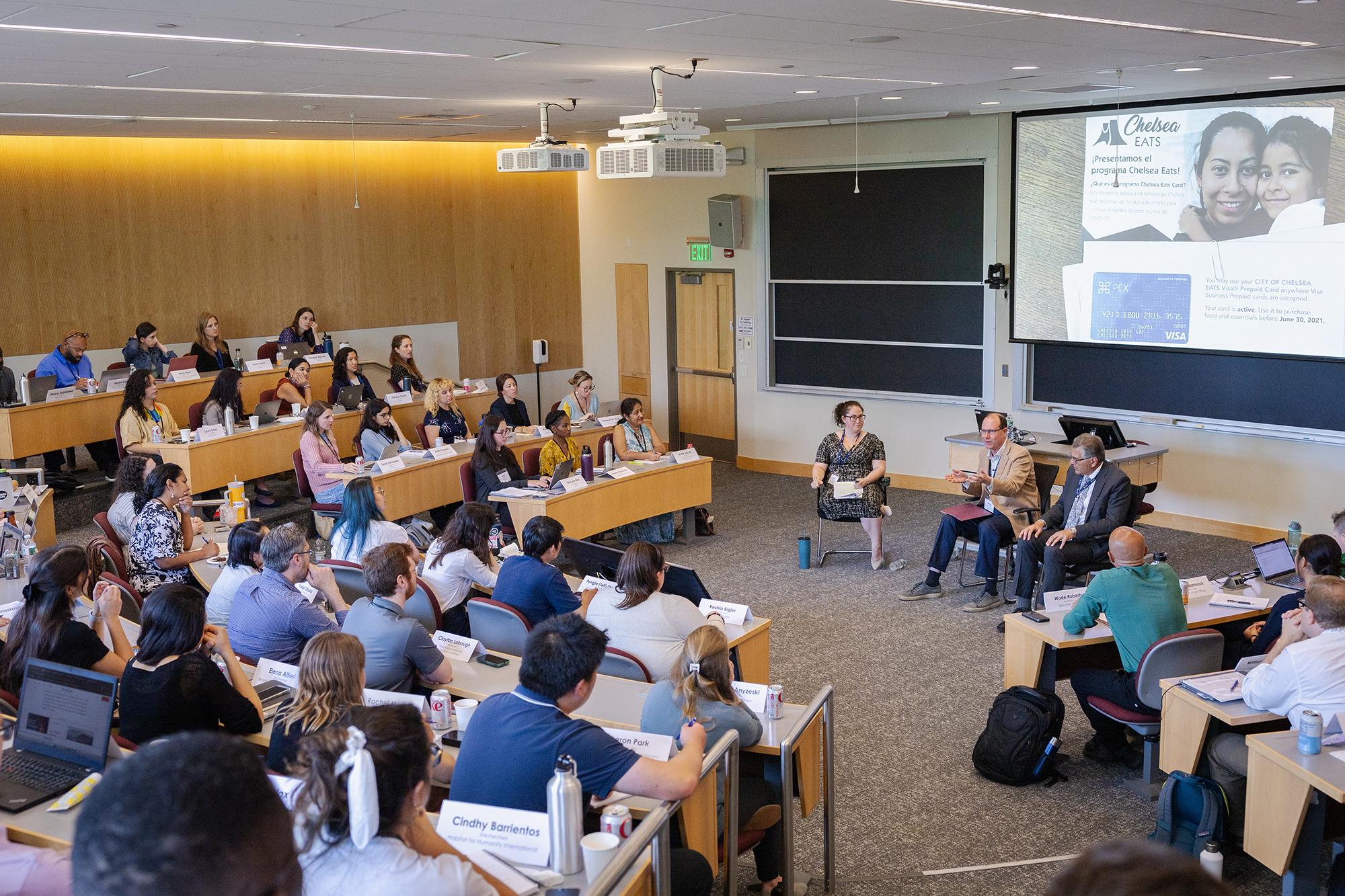
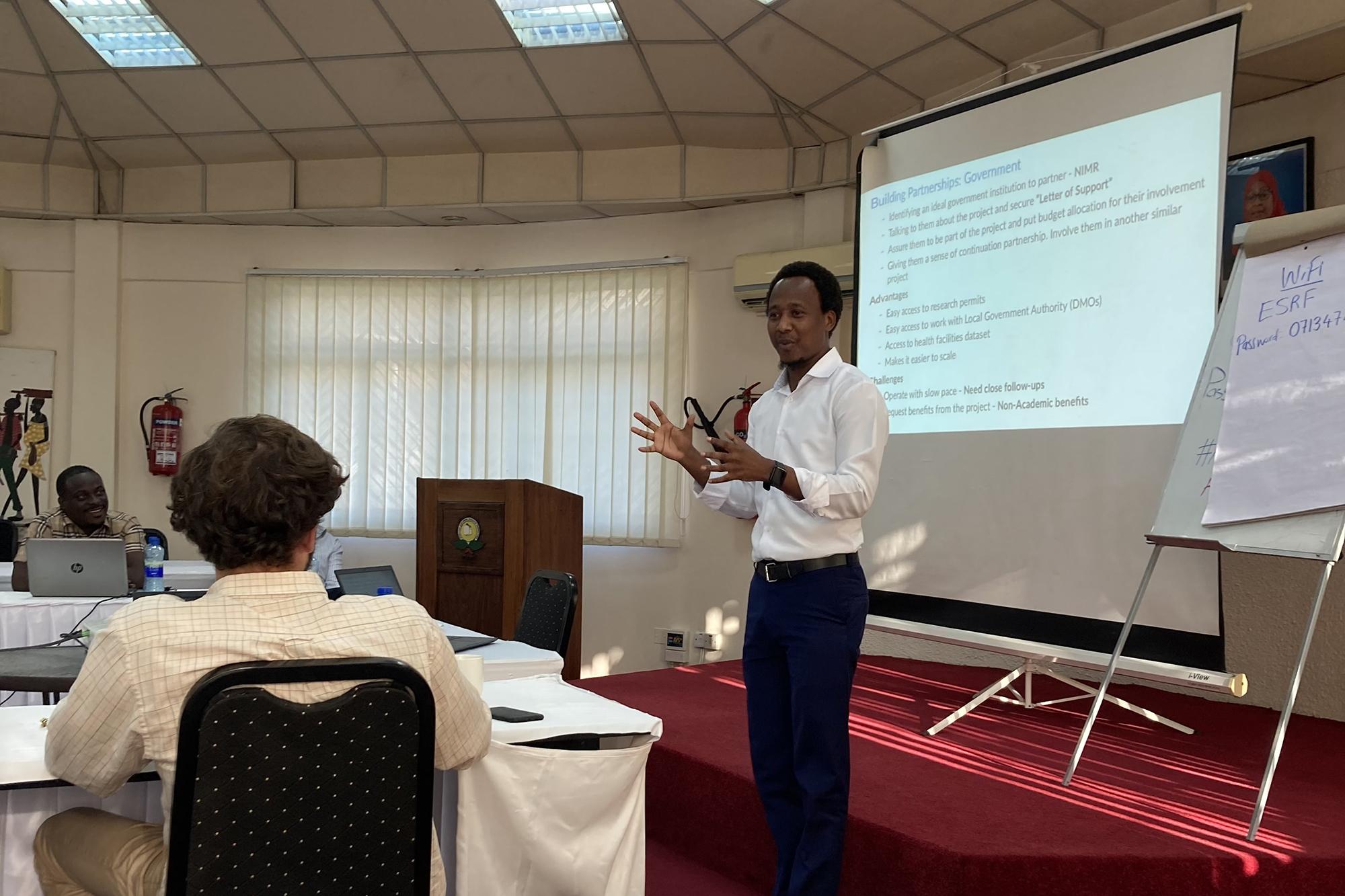
Learn more about how participants applied learnings from J-PAL training courses to advanced evidence-informed decision-making at their organizations in our four-part blog series.
- Building skills to advance impact evaluation: J-PAL’s Evaluating Social Programs course
- Tailoring training modules to strengthen evaluation partnerships: J-PAL’s custom courses
- Strengthening capacity for evidence generation: J-PAL’s evaluation incubators
- Growing a global community for impact evaluation: J-PAL’s online courses
Building a worldwide Alliance for Data, Evaluation, and Policy Training
In January 2024, J-PAL Europe announced a multi-year capacity-building partnership focused on rigorous impact evaluation with the National School of Statistics and Applied Economics of Abidjan (ENSEA) in Côte d’Ivoire. In October, Pascaline Dupas, Scientific Director of J-PAL Africa, officially welcomed ENSEA as a founding member of J-PAL’s new Alliance for Data, Evaluation, and Policy Training (ADEPT).
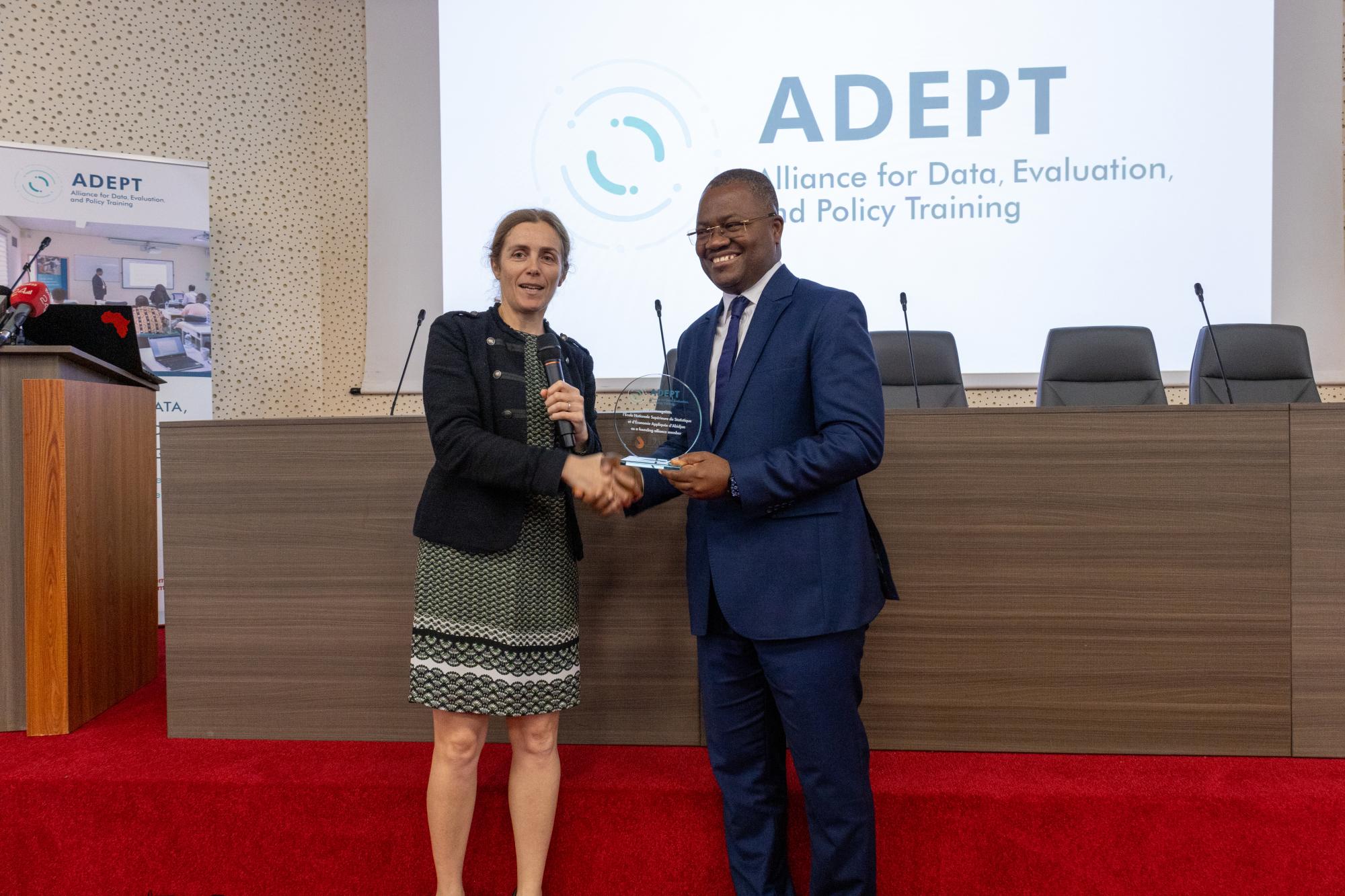
Convened by J-PAL and Community Jameel, the ADEPT network is united by a shared vision: to empower the next generation of researchers, policymakers, and practitioners with the tools and ambition to innovate, test, and scale effective policies and programs to improve the lives of billions.
ADEPT brings together universities, training institutions, research centers, governments, and philanthropic organizations to create new and innovative academic pathways and programs that develop essential skills in policy evaluation and data analysis. Learn more.
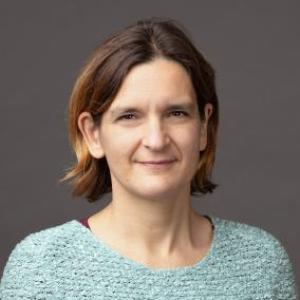
ADEPT represents a new vision to scale our capacity building work beyond the limits of what we can achieve alone, creating a global ecosystem of evidence-informed policymaking that will help transform how decisions are made and improve countless lives.
— Esther Duflo, Director, J-PAL
DEDP student spotlights
Isadora Angelini Frankenthal (DEDP 2020, Brazil), a DEDP alum from the program's first cohort and a recipient of the Vivian and Marcos Lederman–TVML Fellowship, is now a third-year PhD student at MIT, focusing on development and political economy with a special interest in the economics of crime and corruption. Similar to many other DEDP alumni, Isa remains closely connected to the DEDP community. She is currently developing materials for teaching DEDP courses in a flipped-classroom model, facilitating the integration of DEDP content into curricula of universities around the world.
Saeed Miganeh (DEDP 2024, Somaliland), a recent DEDP alum, completed almost all of his formal education in the self-declared Republic of Somaliland during the country’s post-conflict reconstruction. Inspired by Somaliland’s resilience in building a functioning democracy and economy, Saeed pursued the DEDP MicroMasters and completed his capstone with Somaliland’s Ministry of Education. He has since returned to work there, focusing on institutionalizing evidence-based policymaking in the education sector. His dedication to advancing the culture of evidence highlights the real-world influence of the DEDP programs on policy and development.
Sofia Martinez (DEDP 2023, Spain), a DEDP alum with a background in quantum cryptography, made a remarkable pivot from science to development economics. Driven by a commitment to address global challenges, she co-founded Learning Alliance, a nonprofit dedicated to promoting evidence-based teaching practices in sub-Saharan Africa. Through the theoretical knowledge and practical skills gained from the DEDP program, Sofia combines her analytical skills with a mission-driven approach, working to bring impactful, data-backed solutions to education in underserved regions.

Without the MicroMasters paving the way, applying to MIT or any similar institution would have been unthinkable for us. Initially, my aim in taking the online courses wasn't to pursue the residential program; it was only after witnessing my own progress that I realized the possibility wasn't so distant after all. This sentiment resonates with many in our cohort, which is truly humbling.
— Sofia Martinez, Alum from the Class of 2023
Chuka Ezeoguine (DEDP 2022, Nigeria), originally trained in engineering, joined the DEDP program and completed his master’s program capstone with LinkedIn and J-PAL Africa. Motivated by his dedication to data-driven policy, today he is a Predoctoral Research Fellow at London Business School. In this video, he reflects on his DEDP experience.
The Year Ahead
- Expand access to the DEDP MicroMasters program: Provide translated subtitles for lectures in French, Portuguese, Spanish, and Hindi; and provide targeted resources to help learners successfully complete courses, such as weekly recitations and practice exams. We are continuing to fundraise to offer scholarships and fellowships for MicroMasters and master’s students so their pursuit of leadership through policy change is not hindered by their financial constraints.
- Build an alliance to empower a new generation: Through ADEPT, we aim to increase awareness and integration of the DEDP program and other training in impact evaluation across diverse educational and policy settings.
- Broaden the MicroMasters and master’s program curricula: We will add new MicroMasters elective courses in the new Public Policy track and build a strong support system for our incoming cohort of Public Policy master’s students, ensuring a robust educational experience and meaningful capstone opportunities.
- Innovate on training content: We will develop new training materials and expand the audiences we reach to support a community of practice for using and generating evidence, including:
- Securing funding for course fees for policymakers and researchers where cost presents a barrier to their participation.
- Refreshing online course videos and continuing to expand open access written resources.
- Tailoring training modules to strengthen research and policy partnerships, including with FCDO and USAID.
Lead photo credit: Clic Event

